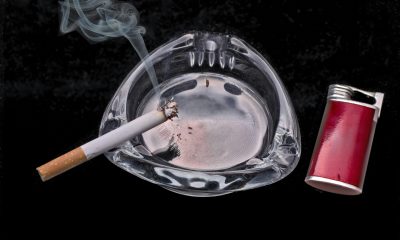EU
#EAPM - 'Patchwork'-reëls kan daardie gene nie herstel nie

 Let’s talk about genomics - yes, let’s - and the power that is about to be unleashed by this relatively new and fast-developing technology, skryf Europese Alliansie vir Persoonlike Geneeskunde (EAPM) Uitvoerende Direkteur Denis Horgan.
Let’s talk about genomics - yes, let’s - and the power that is about to be unleashed by this relatively new and fast-developing technology, skryf Europese Alliansie vir Persoonlike Geneeskunde (EAPM) Uitvoerende Direkteur Denis Horgan.
Peeking just a couple of years down the line and we see that the EU’s regulations in this arena will become more harmonized, with a deadline looming for new rules on genetic testing. In the interim, lots of work is being done to formulate guidelines that can be trusted across Member States and various sectors.
Will the UK be on board? We’ll see… But is is already embedding genetic testing into the NHS via the country’s Genomic Medicine Service. Denmark is making serious moves, too, as is France. The future’s bright, the future’s genetic.
It may not be so far, far away that each embryo has its DNA sequenced, verhuring ouers KNO
We’re not there yet, though. If ‘Workington Man’ wants to get to know his genetic make-up better, he’ll currently have to do it via direct-to-consumer (DTC) genetic testing - an industry that’s raking in the millions and millions of euro, dollars and pounds.
But there are issues regulating this industry - and a lot of governments are scratching their heads. In France, the whole kit-and-caboodle is banned. In the UK, where it’s legal, an inquiry was due to be held, but wasn’t in the end, due to parliament closing for the election.
Pascal Borry, Wie is professor of bioethics at the University of Leuven"s Centre for Biomedical Ethics and Law, has described current regulation as a ‘patchwork’, leaning on wette oor verbruikersbeskerming, as well as some of those regulating in vitro diagnostic medical devices.
But work is ongoing, as mentioned, to bring some harmony to the current cacophony at international, EU and Lidstaat vlaks, met die EU-befonds SIENNA project set to finish work on genetics and genomics.
SIENNA aims to develop tools such as ethical frameworks and codes of conduct, while looking closely at the advertising of DTC tests.
Die projek het researchers in the Netherlands, Sweden, Poland, Germany, Spain, Greece, France and the UK, and officially comes to an end in March next year - although guidelines may well be issued sooner.
Intussen is daar 'nnother set of rules (albeit voluntary) which have seen the Czech Republic, Norway, Portugal and Slovenia climb onboard. This is the Raad van Europa"s protocol and, in 2022, member states will have no choice but to join.
The implications of all the above will be up for discussion at EAPM’s presidency conference coming up on in Brussels from 24-25 March.
2020 up-and-running
The Croatian EU Council Presidency begin the year by presenting its programme until the end of June, which includes organ donation and an ageing society). meanwhile, Ursula von der Leyen’s European Kommissie is addressing blood, tissue and cells legislation.
Intussen het die European Medicines Agency (EMA) and Heads of Medicines Agencies (HMA) have co-written a paper highlighting how difficult it is for regulators to evaluate the quality of groot data.
Soos diey write: “Not all datasets are the same."
Different groups is generating data under "different scenarios and for different purposes and ownership resides with multiple stakeholders, many of whom have no obligation to engage with regulatory systems”, the paper reads.
Speaking of the von der Leyen Commission, it has been asked by Belgian MEP Cindy Franssen of pharmaceutica
The directive in question requires them to make medisyne beskikbaar.
The Belgian deputy also wants to know how the Commission plans "to tackle the growing shortages and improve coordination between member states", sowel as how it van voorneme is to propose to increase production of medisyne in die EU.
Over in Malta, EAPM supporter and Health Minister Chris Fearne didn’t quite make it in his bid to become the country’s next Prime Minister, after a vote in a Labour leadership contest onlangs gehou.
And there could be a change at the top in Ireland, with the EU member state set to hold an election on 8 February. Current Prime Minister Leo Varadkar leads a minderheid regering wat is currently backed by the main opposition party.
Varadkar het dit gesê the election should happen at the best time for the country, and "dit is nou die tyd” as he looks over a landscape that features a Brexit deal, restored power sharing in Northern Ireland, and a long demonstration of solidarity with Ireland by the rest of the EU during the aforementioned Brexit wrangles.
And there could be more of those to come, as the EU’s chief Brexit negotiator Michel Barnier has said that goods entering Northern Ireland from Great Britain post-Brexit will be subject to checks and controls. This directly contradicts statements made by Westminster.
Up in Bonny Scotland things are not-too-bonny for Scottish First Minister Nicola Sturgeon and other supporters of independence, as UK Prime Minister Boris Johnson has rejected Sturgeon’s demand for a second independence referendum.
“The Scottish people voted decisively to keep our United Kingdom together, a result which both the Scottish and UK governments committed to respect,” tweeted the premier.
More on Brexit
Commission chief von der leyen has revealed that in the region of 2.5 million Europeans have applied for residence status in the UK, and urged Brittanje.to create an independent watchdog to deal with 'n EU-burgers" complaints against Boris Johnson s’n regering in die lyn.
Natuurlik, die Europees Parlement’s Brexit Coordinator Guy Verhofstadt is on record as demanding that EU-burgers" regte is a priority in opkomende negotiations on the future relationship.
The Belgian former prime minister took to Twitter to say: “I cannot imagine the EU will agree to any free-trade deal if there are outstanding concerns about the treatment of EU citizens in the UK."
Deel hierdie artikel:
-

 Tabak4 dae gelede
Tabak4 dae geledeWaarom die EU-beleid oor tabakbeheer nie werk nie
-

 China-EU4 dae gelede
China-EU4 dae geledeVat hande om 'n gemeenskap van gedeelde toekoms te bou en 'n beter toekoms vir China-België te skep Allround vennootskap van vriendelike samewerking saam
-

 Europese Kommissie4 dae gelede
Europese Kommissie4 dae geledeNie heeltemal vrye beweging aan die VK aangebied vir studente en jong werkers nie
-

 Europese Raad5 dae gelede
Europese Raad5 dae geledeEuropese Raad tree op teen Iran, maar hoop op vordering in die rigting van vrede






















